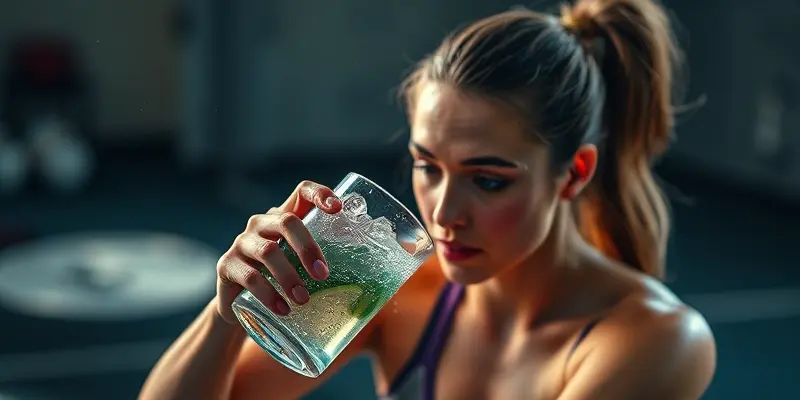Staying hydrated during exercise is more than just a good habit—it’s a crucial strategy for recovery, injury prevention, and athletic success. Whether you lift, run, or play sports, learning how to optimize intra-workout hydration can make the difference between progress and setbacks.
Why Intra-Workout Hydration Matters
Ever felt a painful muscle cramp mid-workout or found your energy levels crash before finishing your routine? That’s often dehydration at work. Even small losses in fluids can cause:
- Muscle cramps and strains
- Reduced power and endurance
- Mental fatigue and lack of focus
- An increased risk of injury
Dehydration makes it harder for your muscles to contract, slows down nutrient delivery, and even puts more strain on your joints. Studies have shown that losing more than 2% of your body weight in fluids can significantly impair performance and ramp up recovery time. For serious athletes and weekend warriors alike, that could mean missing key training sessions—or worse, getting sidelined with an injury. For more tips on avoiding injuries, check out our injury recovery checklist.
What Makes a Good Intra-Workout Hydration Solution?
Water is a great start, but during intense or extended workouts, you lose more than just H2O. Here’s what you need to know:
Essential Ingredients
- Water: Basic hydration; prevents overall fluid loss.
- Electrolytes (sodium, potassium, magnesium): Replace what you sweat out, preventing cramps and keeping nerves firing.
- Carbohydrates: Fuel your muscles for long or high-intensity efforts; stave off mid-session energy crashes.
- Amino Acids (like BCAAs): Help reduce muscle breakdown, especially during strenuous or long workouts.
Comparing Your Options
| Solution | Fluids/Electrolytes | Carbohydrates | Amino Acids | Best For ||—————————|———————|—————|————-|——————————————|| Plain Water | Yes | No | No | Short, light sessions || Sports Drink | Yes | Yes | No | Moderate to long workouts, extra fuel || Electrolyte Tablet | Yes | No | No | Hot weather, heavy sweaters || Intra-Workout Supplement | Yes | Yes/Optional | Often Yes | Intense/long training & muscle recovery |
For most people, a blend of water, electrolytes, and a small amount of carbs is ideal for sessions lasting over an hour, or for anyone doing high-intensity training. Look for formulas with balanced electrolytes; add aminos if muscle recovery is a priority.
Practical Hydration Strategies for Every Athlete
How Much, How Often?
- General Rule: Sip 150–250ml (5–8 oz) every 15–20 minutes during your workout.
- Longer or Intense Sessions: Choose a drink with electrolytes and 3–6% carbohydrates.
- Listen to Your Body: Drink to thirst, but don’t wait until you feel parched.
Making It Work in Real Life
- Add flavor or use supplement powders if plain water isn’t appealing.
- Use a marked water bottle or hydration app to track your intake.
- For beginners: Start by drinking a little more than usual during workouts and adjust based on how you feel.
- For advanced athletes: Dial in your formula and timing based on sweat rate, workout length, and performance goals.
Beyond Recovery: The Psychological Benefits
Staying hydrated isn’t just about the body—your mind benefits too:
- Quicker recovery means less soreness and more motivation to keep training.
- Avoiding dehydration slumps maintains your focus and drive, session after session.
- Fewer injuries and aches keep you consistent, building long-term habits and confidence.
Key Takeaways & Your Next Steps
Hydration during your workout is a simple habit with massive benefits. It:
- Reduces injury risk and speeds up recovery
- Improves performance and focus
- Supports energy, motivation, and healthy habits over time
Ready to upgrade your routine? Review your current hydration habits. Try adding electrolytes or a structured drinking plan during your next workout—and notice the difference in how you feel, perform, and recover. Keep your bottle close. Your body (and your future self) will thank you!

